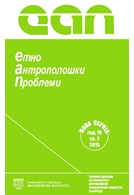Nasleđivanje baštine ili baštinjenje nasleđa?
To inherit heritage or to inherit inheritance?
Author(s): Vladimir KrivošejevSubject(s): Museology & Heritage Studies
Published by: Филозофски факултет, Универзитет у Београду
Keywords: heritage; patrimonium; patrimoine; patrimonio; baština; nasleđe; dediščina; UNESCO; heritologija; heritage science
Summary/Abstract: The Republic of Serbia is one of the few, if not the only country in the world that, at ratification and translation of the term “baština”- heritage which appears in two significant and related international conventions of UNESCO, used different terms: “baština”- "heritage", with regard to the Convention Concerning the Protection of the World Cultural and Natural Heritage, and ''nasledje'' -inheritance in the Convention for the Safeguarding of the Intangible Cultural Heritage. One of the reasons for the subsequent rejection of the term heritage could lay in the opinion that it was the case of (end of 20th and beginning of the 21st century) political bureaucratic introduction of an old, forgotten word, which also contains the notion of gender incorrectness based on pointing out the inheritance through the male line, which could be in conflict with international law. The views expressed in this paper suggest the unsustainability of these claims, as well as greater suitability of the term “baština”- heritage. Namely, the ratification of the Convention Concerning the Protection of the World Cultural and Natural Heritage was done as early as in 1974, and since then the term “baština”- heritage was used, its new introduction into use on the basis of recent daily political aspirations cannot be the case. At the same time inheritance through the male line is encountered with the use of the Latin word "patrimonium", which is the basis for the terms used in the official translation of the UNESCO-listed conventions in French and Spanish: "patrimoine" and "patrimonio" (and other Roman languages) so that the use of the term “baština” –heritage cannot be a violation of international legal norms. Finally, bearing in mind the fact that, in general, use of languages is impossible to achieve complete gender purism, it is necessary to emphasize that in contrast to the term "nasledje'' – inheritance, the term “baština” – heritage is more suitable for use in Serbian language when it comes to the concept of inheritance, preservation and transmission of universal values promoted by the UNESCO Convention, as well as for translating the notion of heritage science.
Journal: Етноантрополошки проблеми
- Issue Year: 10/2015
- Issue No: 2
- Page Range: 427-436
- Page Count: 10
- Language: Serbian

